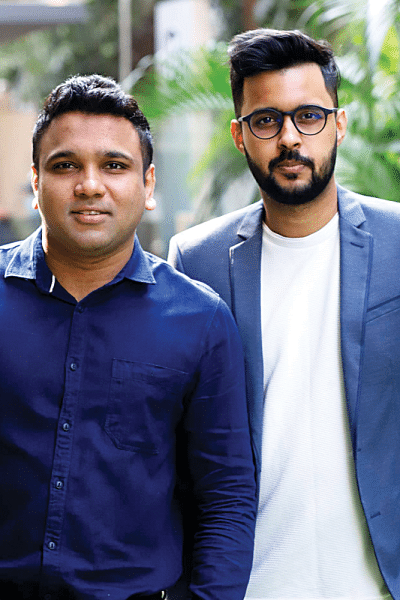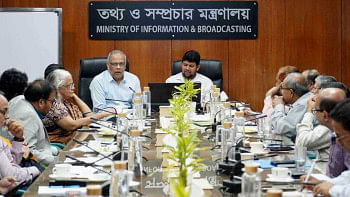Inside look at Crimson Cup

1. Crimson Cup is currently is one of the biggest coffee brands for the youth of Bangladesh? Where did it all begin?
It all started back in 2015 when both of us came back from abroad after finishing our studies. We have been friends from our school days till now and after coming back from abroad, we wanted to do something together. We were both interested in the coffee culture that was starting to pick up some pace in Dhaka and thus we decided to go for it. So, we reached out to Crimson Cup and were thoroughly rejected. We were just two guys, coming out of universities with no prior experience. We were rejected 3 times by Crimson Cup. But we did not falter. We came up with a proper business plan & market research and flew out to the USA to meet them in person and propose our idea to franchise their brand directly. They were very impressed by our initiatives and decided to give us the franchise to start Crimson Cup in Bangladesh.
What we did was, we focused on students from the get-go. We picked up on the growing trend of coffee & hangout culture in Dhaka and incorporated us with this culture. We did events in prominent private universities to catch the eye of the students. We gave out brownies, free drinks to draw attention and interest towards the brand. We started this brand without any major backing and started it off as a startup.

2. What challenges did you face initially while starting?
When we started off, we were the first coffee shop to introduce a sugar station beside the register. It is a basic concept of coffee culture in the western country and we wanted to be the first ones to start and integrate this concept in our coffee culture as well. But people close to us constantly warned us that it would not work, people would just steal the sugars from there. Nevertheless, we moved forward with our plan to promote the Self-Service culture that was non-existent in this part of the world. In every store, the sequence of buying the coffee, going a bit right to the sugar station to pick out your preferred amount, and go and sit has been made very simple, so that people don't have to move that much. That has been a challenge for us because the people here are not very much used to this Self-Service system.

They would just come in, sit down and call the baristas, who were not even trained for taking orders. People used to get a bit mad at the beginning, but it has now become the standard for all the customers to follow. So, that was one of the initial challenges, to get the people of Bangladesh to get used to the Self-Serving aspect of the coffee culture. Another challenge for us at the beginning was that we had to import all of our materials like Coffee beans, syrups, and everything from the USA. But, Crimson Cup came forward to help us with this aspect and assisted us in setting up an efficient supply chain management system.
3. Crimson Cups Bakery is one of the top nowadays, in this competitive market what are your strategies for becoming number one?

Our Armando Coffee blend is the thing that sets us apart at the beginning. It's a blend that has a nutty flavor, that can be used with every type of drink and its quality is just unfathomable. Apart from that, we have a size difference in our coffee cups than other local coffee brands in our vicinity. Our cups are generally bigger in size in terms of Small, Medium, and Large. Our small cup size is basically their medium.
Moreover, in the restaurant business, the only thing that matters is the quality of your product, not effective marketing or interior. If you look at the other big coffee brands that are expanding here as well, they don't spend that much on marketing their product. What we focus on is what happens behind the counter and focus on the quality of coffee and food that are reaching our customers.
4. What are the steps you have taken for your restaurants to adapt to the new normal?
We spent a lot of money on disinfecting and cleaning our restaurants. We don't take any orders or let anyone enter if our customers are not wearing masks. We are deep cleaning it on a monthly basis as well. Daily cleaning has been severely amped up as well, with surfaces at the tables and door handles being cleaned with surface disinfectants

5. We have seen a lot of people trying their hands in different cuisines during the lockdown. Any advice for the aspiring chefs/home cooks of Dhaka?
This is brilliant. We believe people should always be involved in stuff they are truly passionate about. So, If someone's passionate about cooking, be it a guy or a girl, they should go for it. Yes, we have a lot of tasks in our daily life like family, work, etc. Nevertheless, if you're passionate about something, they should go for it. We love the idea that people are utilizing their talents and turning them into successful businesses. People are finally realizing the number of resources that are freely available and properly utilizing them to the fullest extent.
6. Are there any upcoming exciting news for Crimson Cup anytime soon?

Our current plan of action is to open as many branches as we can in Dhaka city, as well as different areas of Bangladesh as well. We already have a branch in Sylhet and looking to open up in Chittagong & Khulna. As we have the master franchising rights for South Asia, we're looking to expand in other countries as well. We are in talks with Nepal and India at the moment. We are also trying our hands at roasting our own coffee beans and become Crimson Cup Roasters. That will help us in producing our materials here, rather than importing them.

 For all latest news, follow The Daily Star's Google News channel.
For all latest news, follow The Daily Star's Google News channel. 



Comments